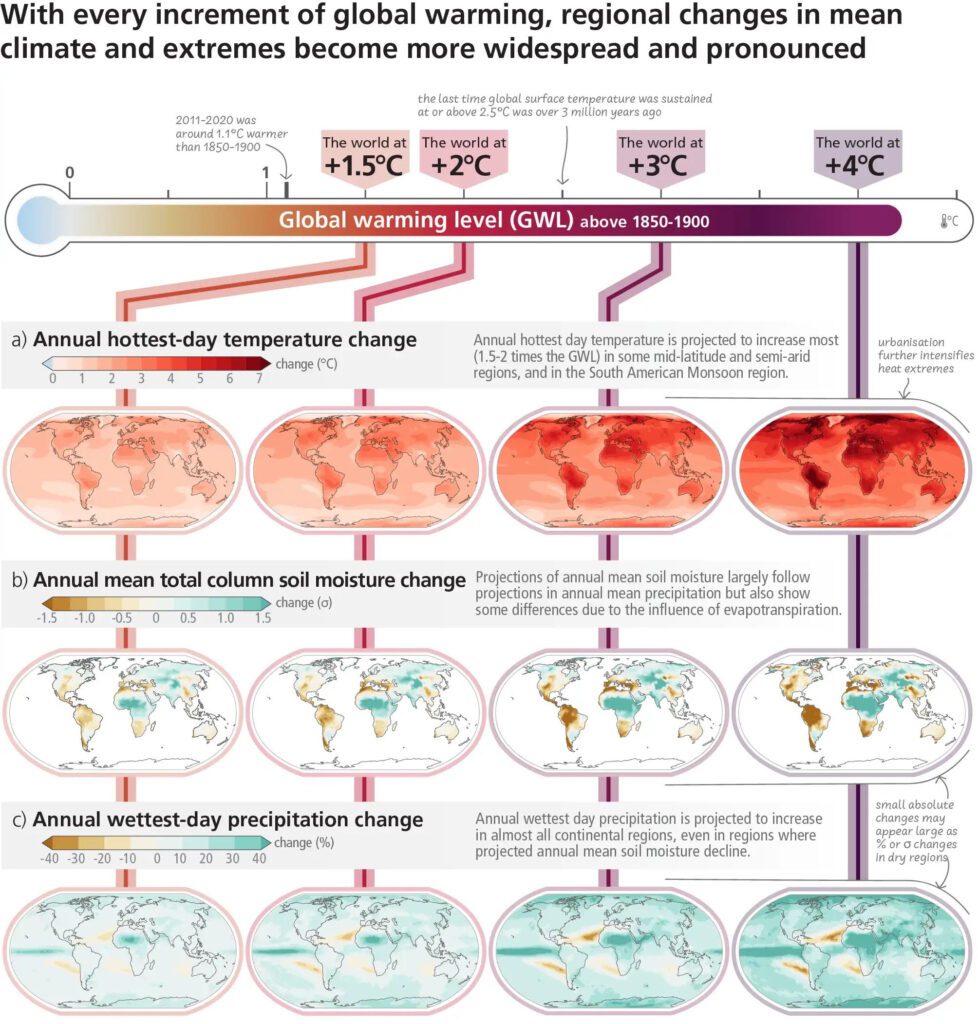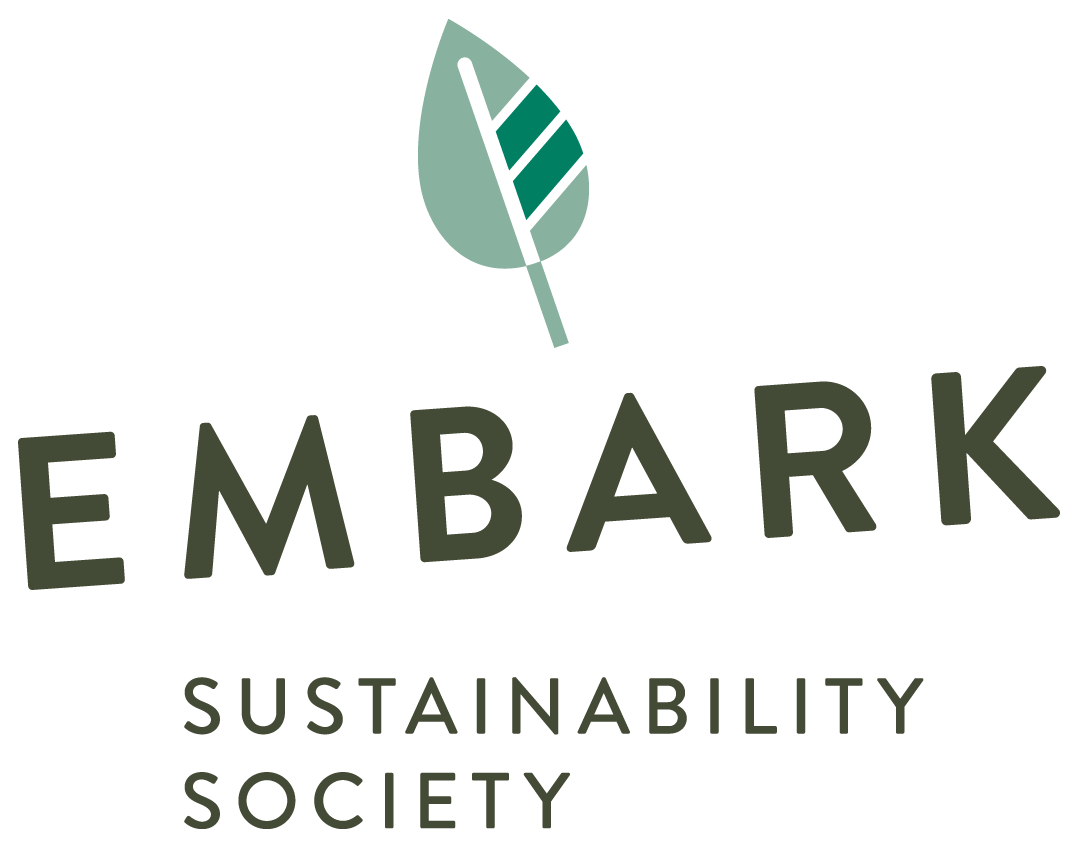How did experts review the IPCC’s AR6 Synthesis Report?
The final report in the Intergovernmental Panel on Climate Change’s (IPCC) sixth assessment reporting cycle was released today (March 20). This marks the completion of an eight-year cycle that includes three major reports on the physical science basis, adaptation, and mitigation of climate change, some special reports on keeping global temperature increase to within 1.5 degrees Celsius of pre-industrial temperatures, oceans and frozen waters, land, and others. The final AR6 publication brings all previous reports in the cycle together in a single Synthesis Report.
The Synthesis Report condenses thousands of pages into a document that is just dozens of pages long. This report emphasizes the urgency of the need for wide-ranging transformative climate action to secure a livable future for those currently living and generations to come. The Synthesis Report includes information-rich figures that convey this urgency of the need for further action. Figure SPM.2 (SPM stands for “Summary for Policy Makers”) shows expected temperature and precipitation highs under four potential temperature increase scenarios:

Caption: Figure SPM.2: Projected changes of annual maximum daily maximum temperature, annual mean total column soil moisture and annual maximum 1-day precipitation at global warming levels of 1.5°C, 2°C, 3°C, and 4°C relative to 1850–1900. Projected (a) annual maximum daily temperature change (°C), (b) annual mean total column soil moisture (standard deviation), (c) annual maximum 1-day precipitation change (%). The panels show CMIP6 multi-model median changes. In panels (b) and (c), large positive relative changes in dry regions may correspond to small absolute changes. In panel (b), the unit is the standard deviation of interannual variability in soil moisture during 1850–1900. Standard deviation is a widely used metric in characterising drought severity. A projected reduction in mean soil moisture by one standard deviation corresponds to soil moisture conditions typical of droughts that occurred about once every six years during 1850–1900. The WGI Interactive Atlas (https://interactive-atlas.ipcc.ch/ ) can be used to explore additional changes in the climate system across the range of global warming levels presented in this figure. {Figure 3.1, Cross-Section Box.2}
Professor Richard Allan of the University of Reading says of the report: “As human activities continue to pump greenhouse gases into the atmosphere, the only way Earth can cool to space is becoming further compromised which is increasing global warming and intensifying the severity of wet, dry and hot extremes. This comprehensive synthesis of the state of knowledge on climate science assessed by many hundreds of scientists across three weighty reports is clear that greenhouse gas emissions must be rapidly cut across all sectors of society until net emissions are zero. Every bit of warming avoided due to the collective actions pulled from our growing, increasingly effective toolkit of options is less worse news for societies and the ecosystems upon which we all depend.”
While Professor Allan emphasizes the importance of avoiding greenhouse gas emissions, he also highlights that today’s report brings together the works of many hundreds of scientists. This includes everything from primary research to assessing research publications. The latter is done on a voluntary basis by scientists around the world. The assessment of the latest science is written up, summarized or synthesized, and the documents produced through this process is reviewed by volunteer experts.
I had a chance to learn about what goes into an expert review firsthand last spring as comments on the Synthesis Review were being accepted. To volunteer as an Expert Reviewer with the IPCC a researcher must apply online. Successful applications demonstrate the expertise of the applicant on a subject related to the report being reviewed. The key to demonstrating expertise is to have a peer-reviewed published on a relevant topic. For my application, I was able to demonstrate expertise in climate change impacts on water.
Applications are processed by volunteers and applicants are notified about whether they’ve been accepted through the online system which is also used to manage the review process. Before accessing the draft text, Expert Reviewers must agree to terms such as keeping the report confidential since it is not yet ready to be released to the public. After the reviewer accepts the terms, they gain access to the report as a series of PDF chapters. Reviewers can review one or more chapters and are expected to submit comments to help clarify the text and figures, but not to correct typos as these are addressed by copy editors.
Transparency is an important aspect of any IPCC review as it promotes objectivity and thoroughness given the diversity of views and areas expertise among reviewers. To achieve transparency, all reviewer comments are made public. The team that receives reviewer comments must also respond to each comment and these responses are also published whether a comment results in a revision to the report or not.
As an MSc student in SFU’s Climate Research Lab, I was fortunate to be able to discuss the comments I planned to submit with my supervisor Dr. Kirsten Zickfeld, and lab colleagues Rachel Chimuka, Takuma Mihara, Alexander MacIsaac, and Dr. Alexander Koch. Their feedback enriched the comments I ultimately contributed and I am grateful to the group for its willingness to dedicate a lab meeting to discussing this topic.
The revised Synthesis Report was presented at the 58th session of the IPCC in Interlaken Switzerland, held March 13 to 17. IPCC member nations signed off on the report making today’s release possible.
————
written by: Christine Leclerc (she/they) a past Embark Sustainability Board Chair and current MSc student in SFU’s Geography Department where she studies the water cycle impact of carbon dioxide removal through nature-based solutions such as afforestation. They served as an Expert Reviewer for the IPCC’s AR6 Synthesis Report.
READY TO READ MORE?
Related Blog Posts
SFU Waste Reduction: How Effective is it?
SFU students are undoubtedly familiar with the “four-stream” waste bins all over campus that require them to separate their food waste into different categories. But...
Climate Anxiety
What is Climate Anxiety? Since the beginning of climate environmentalism in the 1970s, people have been exposed to stories centering climate change through popular...
Reengaging eco-activism over fueling eco-anxiety
What is eco-anxiety? Eco-anxiety, seems simple enough to understand, right? Guess again. This is a loaded term that has been part of formal and informal discourse...
BLOG POST SUBMISSION
What type of content can you submit? Writers are encouraged to share sustainability through their lens and take any interesting thought, story or idea and create content.
It could be features, articles, interviews, poetry/prose, dispatches, reviews, photography, illustration, and/or videography.
The only requirement is that the created content falls under one of the following Embark Sustainability priority areas or their intersections:
- Climate Equity
- Food Justice
POST RECOMMENDATIONS
- Write about what you are passionate about and that aligns with priority areas. Or challenge yourself in creating something new.
- Think critically rather than just making statements.
- Be creative.
KEEPING JUSTICE, EQUITY, DECOLONIZATION, DIVERSITY, AND INCLUSION IN MIND
Ask yourself the following questions while writing:
- What communities does this topic affect and why?
- What systemic barriers are involved in this topic?
- Who benefits from the current systems in place?
- How does my positionality affect my understanding of this topic? How can I address this in my piece?
If you have any questions contact our Design & Communications Manager, communications@embarksustainability.org



